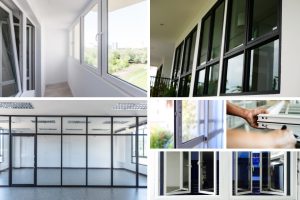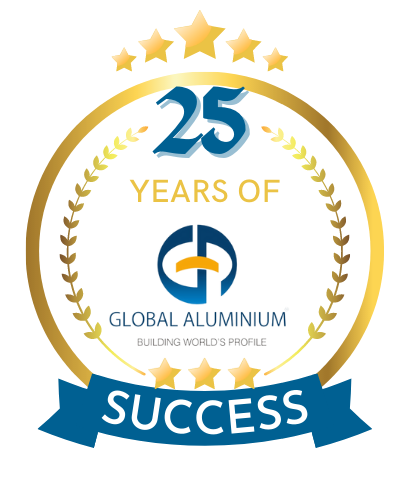Introduction
Aluminium extrusion profiles have revolutionized the windows and doors segment, offering unparalleled benefits in terms of strength, versatility, and aesthetics. The process of extruding aluminium allows for the creation of intricate profiles that can be tailored to meet specific design requirements. In this blog, we will delve into the world of aluminium extrusion profiles and explore their diverse applications in the windows and doors industry.
The Advantages of Aluminium Extrusion Profiles
Aluminium extrusion profiles offer several advantages that make them highly sought after in the windows and doors segment. First and foremost, aluminium is lightweight yet robust, making it ideal for constructing large windows and doors without compromising structural integrity. The extrusion process enables the creation of complex profiles with varying cross-sectional shapes, allowing for enhanced functionality and design possibilities.
Additionally, aluminium is highly resistant to corrosion, ensuring longevity and durability, even in harsh environmental conditions. This makes it an excellent choice for windows and doors that are constantly exposed to the elements. Aluminium extrusion profiles are also low-maintenance, requiring minimal upkeep and eliminating the need for frequent painting or staining.
Furthermore, aluminium is an environmentally friendly material due to its recyclability. It can be recycled repeatedly without any loss in quality, making it a sustainable choice for windows and doors manufacturers who prioritize eco-friendly practices.
Applications of Aluminium Extrusion Profiles in Windows
Aluminium extrusion profiles find a wide range of applications in the windows segment, offering numerous benefits to both residential and commercial projects. One of the primary uses of these profiles is in the construction of window frames. The flexibility of aluminium extrusion allows for the creation of slim, lightweight yet strong frames that maximize the glass area, providing unobstructed views and ample natural light.
Moreover, aluminium profiles can be customized to incorporate thermal breaks, which enhance energy efficiency by reducing heat transfer between the interior and exterior of a building. This feature helps in maintaining comfortable indoor temperatures and reducing energy consumption for heating and cooling.
Aluminium extrusion profiles also play a vital role in the manufacturing of sliding windows and casement windows. The versatility of extruded profiles enables the creation of smooth gliding mechanisms for sliding windows, ensuring effortless operation. Casement windows benefit from the strength and rigidity of aluminium, providing excellent security and weather resistance.
 Applications of Aluminium Extrusion Profiles in Doors
Applications of Aluminium Extrusion Profiles in Doors
In the doors segment, aluminium extrusion profiles offer numerous advantages over traditional materials such as wood or uPVC. One significant application is in the manufacturing of entrance doors, where aluminium profiles provide exceptional strength and security. The inherent rigidity of aluminium extrusions makes it difficult to break or damage, ensuring the safety of the building’s occupants.
Additionally, aluminium profiles can be designed to accommodate multiple locking points, further enhancing security. These profiles can also be integrated with advanced locking systems and access control technologies, making them suitable for commercial applications.
Aluminium extrusion profiles are widely used in the fabrication of sliding doors and folding doors. The lightweight yet durable nature of aluminium allows for the creation of large door panels that slide effortlessly or fold neatly, providing seamless transitions between indoor and outdoor spaces. These doors are popular in residential and commercial settings, where they offer enhanced aesthetics and functionality.
Conclusion
Global Aluminium has revolutionized the usage of Aluminium extrusion profiles in windows and doors segment, offering a host of benefits in terms of strength, versatility, and aesthetics. Their lightweight yet robust nature, coupled with resistance to corrosion, makes them an ideal choice for creating durable and low-maintenance windows and doors.
